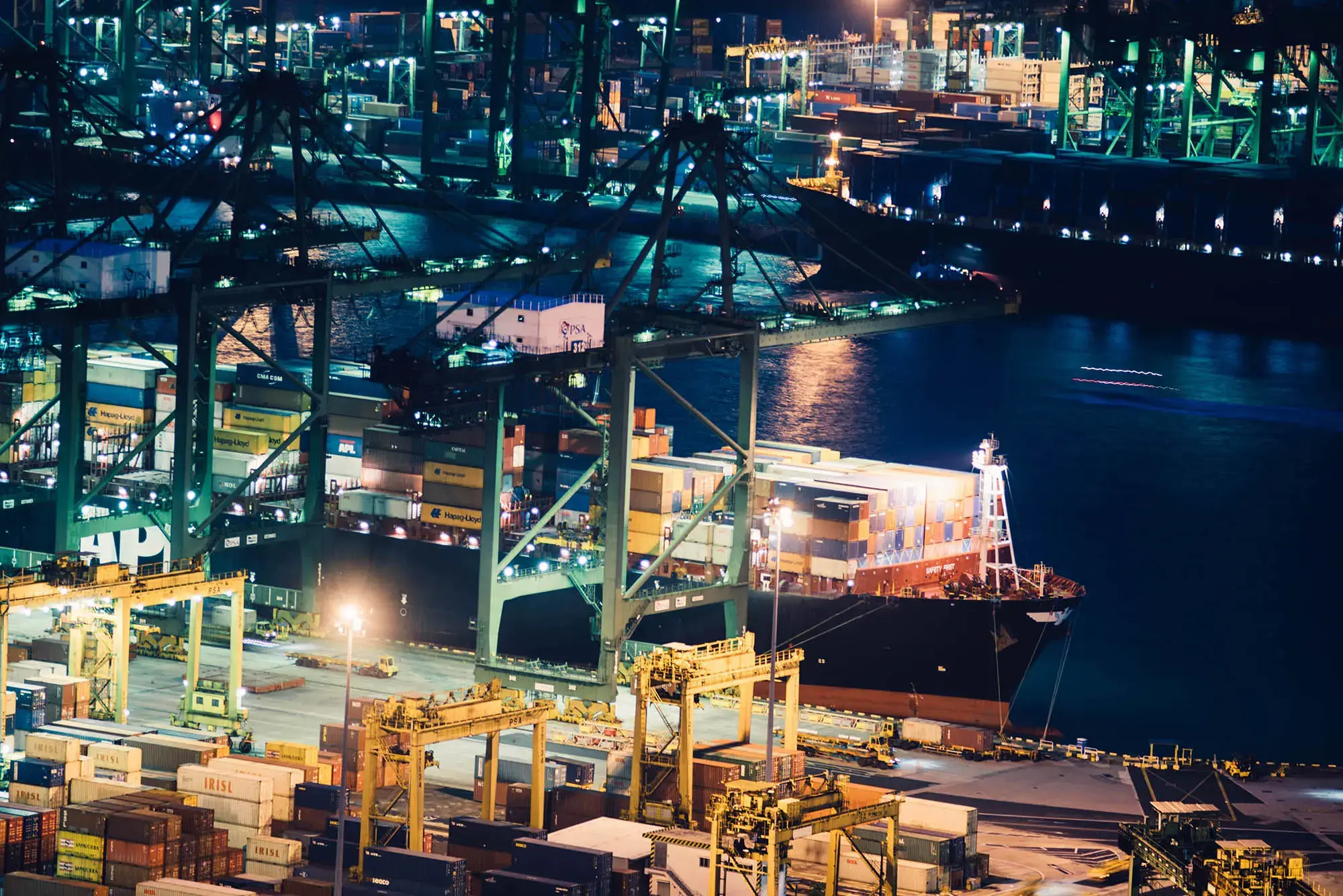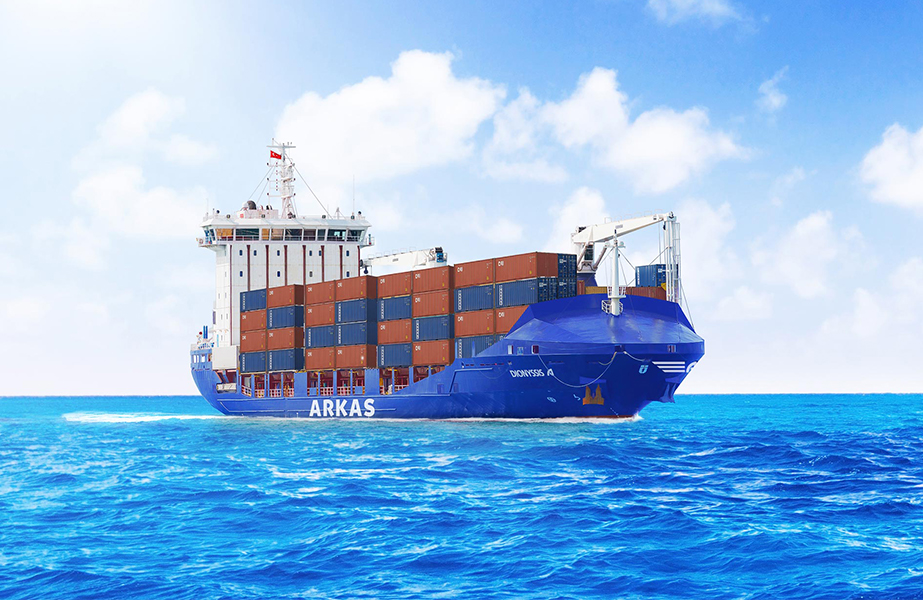The current Block Exemption Regulation for liner companies should be revoked, say some. Others want it extended. The EU Commission will now address the issue. WPO has gathered some of the comments from the disputing parties here.
 Photo: /Christian Charisius
Photo: /Christian Charisius
Should the liner shipping industry continue to benefit from a unique regulation that exempts carriers from standard EU competition rules? Or is it time to retire the regulation?
The EU Commission will now make a decision. On Thursday this week, a protracted consultation period came to an end, in which stakeholders in and around the shipping industry were asked to submit their comments about the Block Exemption Regulation, BER.
The current BER is set to expire on April 25, 2020. And not not everyone feels it should be extended by another five years, which has otherwise the case for some time now. The regulation has in recent years been criticized by, among others, the liner companies’ customers, the shippers.
The various comments submitted in the consultation period will now be read and assessed by the Commission, which will the decide whether or not to extend the regulation.
The Block Exemption Regulation
The European Shippers’ Council (ESC) has submitted comments. The association recommends that the BER be revoked and replaced by a new scheme.
“The new BER shall apply under a lower than 30 percent market share and to consortia which do not exceed a certain size,” writes ECS in its comment, which WPO has read.
Among other things, the new BER should require that the Commission review the consequences of acquisitions and mergers if two liner companies from different consortia join forces, say the shippers.
“Also, to reach a well-functioning market despite its high level of concentration, other (legal) instruments shall be considered as part of a paradigm-shift, such as offering to smaller shippers some kind of protection against the conditions applied to them by the market,” writes ESC:
“If all these conditions are not met ESC prefers the BER to be discontinued completely.”
The shippers in the UK-based Freight Transport Association, FTA, also calls on the EU to revoke the regulation, saying it should be replaced by new arrangements.
“The FTA, joined with the European and global shippers community, has called on the European Commission not to renew the Consortia Block Exemption but instead to end these special privileges and transition to normal competition conditions for the liner shipping industry,” says FTA Deputy Chief Executive James Hookham in a statement to WPO.
Ports call for more transparency
The European Sea Ports Organisation, ESPO, has also submitted comments to the Commission. The association argues neither for nor against an extension of current regulation. Instead, ESPO calls for more transparency and insight into the liner companies services than is the case today.
“ESPO stresses the need to ensure and monitor that the benefits of any shipping alliance are shared by all, end-consumers and stakeholders, in the logistics chain alike. These benefits should not only be considered in monetary terms, but also in the quality of the service,” writes ESPO.
Additionally, the port association wants more transparency in terms of the current alliances, and it lists a series of points which it says the EU Commission should keep an eye on.
Shipowners call for extension
The four major shipowners’ associations have also submitted a joint comment to the Commission in the public consultation. They all call for a five-year extension of the current regulation, which would thus run until 2025.
The conclusion reached by the shipowners’ associations, which represent the European as well as Asian shipowners, is that the BER has “worked very well” for close to 25 years, says John Butler, President and CEO of the World Shipping Council, WSC, in a joint comment.
“It sets out clear rules that can be practically applied without the need for extensive legal analysis. This means that carriers can focus on seeking the most efficient transportation solutions without the cost and delay associated with legal self-assessment for these routine operational arrangements,” says Butler in the comment.
Beyond WSC, the comment also represents the International Council of Shipping, the European Community Shipowners’ Association and the Asian Shipowners’ Association.
The container industry has changed significantly since the last time the rules were extended, in 2015.
Big players have gotten bigger. And most of the world’s container capacity is now concentrated in three alliances of shipping companies which help carry each other’s goods.
The alliances
During this period, the service level has been subject to fierce criticism in the industry. The introduction of mega-vessels of more than 18,000 teu has made it more difficult for ports. Meanwhile, the shipping lines’ ability to arrive on time with their ships has gone down, and the alliances have not helped, say the shippers and other customers.
However, acquisitions and mergers are not enough to fundamentally change the competition scenario in the sector, say the shipowners’ associations. This is evident from factors such as the freight today being down 50 percent compared to 20 years ago, say the shipping companies in their joint comment.
“A lot has changed in our industry in the past five years, but the fact is that there is still fierce competition among carriers. The purely operational agreements covered by the BER foster competition by lowering barriers to entry and enabling carriers to compete on more routes,” says Martin Dorsmann, Secretary General of the European Community Shipowners.
A success
EU Commissioner for Competition Margrethe Vestager recently commented on the impending efforts to review the Block Exemption Regulation in an interview with WPO.
According to Vestager, the BER has worked well. But the outcome of the review the Commission is working on now could be “quite extensive,” she told WPO.
“Our starting point is that the exemption has worked well, as it has created a different type of competition than one would otherwise have had. Even though the consortia are large, there are still many sizes of carriers, and in order for the major ones to face competition, the smaller ones have to help each other compete against them,” she said:
“So to ensure competition in the shipping sector, our starting point is that it’s been a success.”
English Edit: Daniel Logan Berg-Munch
Competition commissioner sets container carriers’ block exemption in play
Drewry: Alliances could become replaced by mega-carriers
He is the lobbyist working to give container carriers an edge




